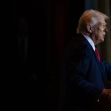On Thursday, a federal judge in Seattle issued a nationwide temporary restraining order blocking the enforcement of President Donald Trump’s executive order restricting automatic birthright citizenship in the United States, calling the directive “blatantly unconstitutional.”
U.S. District Judge John Coughenour, a Reagan appointee, halted the executive order just three days after Trump signed it, preventing U.S. agencies from refusing to recognize the citizenship of children born on American soil to parents who are neither U.S. citizens nor legal permanent residents.
The decision came in response to a lawsuit filed by four Democratic-led states—Washington, Arizona, Illinois, and Oregon—arguing that the order violated the 14th Amendment’s Citizenship Clause. The clause, adopted in 1868 after the Civil War, guarantees that anyone born in the United States is a citizen.
“This is a blatantly unconstitutional order,” Judge Coughenour said during the hearing. “Under this order, babies being born today don’t count as U.S. citizens. That is a legal and moral absurdity.”
The restraining order temporarily halts enforcement of the executive action for 14 days, during which Judge Coughenour will consider whether to issue a preliminary injunction that could extend the block while the case proceeds.
Assistant Attorney General Lane Polozola of Washington argued on behalf of the states, emphasizing the potential harm to children born after Feb. 19, who would be “stripped of their constitutional birthright” and face deportation under Trump’s order. These children would also be denied Social Security numbers, government benefits, and lawful work authorization.
Justice Department attorney Brett Shumate defended the order, asserting it was a constitutional and “integral part” of Trump’s broader efforts to address immigration reform. However, the judge was unconvinced, stating, “I am having trouble understanding how a member of the bar could state unequivocally that this order is constitutional. It just boggles my mind.”
If implemented, Trump’s executive order would mark the most sweeping restriction of birthright citizenship in U.S. history. According to the Democratic-led states, more than 150,000 children born annually in the United States would be denied citizenship.
The order follows ongoing efforts by some congressional Republicans to limit automatic citizenship. Thirty-six Republican lawmakers introduced legislation earlier this week seeking to restrict citizenship to children born to U.S. citizens or lawful permanent residents.
Civil rights groups and attorneys general from 22 states have also filed lawsuits nationwide, calling Trump’s order a “flagrant violation” of the U.S. Constitution.
The lawsuits cite the 14th Amendment, which was adopted to overturn the Supreme Court’s infamous 1857 Dred Scott decision that denied citizenship to enslaved Black people. The plaintiffs also reference the Supreme Court’s 1898 ruling in United States v. Wong Kim Ark, which held that children born in the United States to non-citizen parents are entitled to citizenship.
Legal scholars and the states argue that Trump’s order is a direct challenge to these long-standing constitutional principles. Opponents of birthright citizenship argue that the phrase “subject to the jurisdiction” in the Citizenship Clause excludes children of undocumented immigrants, a view dismissed by most legal experts.
The restraining order temporarily halts Trump’s efforts, but the legal battle is far from over. The cases are expected to make their way through federal courts, and the Supreme Court may ultimately decide the issue.
In the meantime, Democrats and immigrant advocacy groups are urging Congress and the courts to reaffirm constitutional protections for birthright citizenship. As litigation proceeds, the 14th Amendment’s promise of citizenship remains under the scrutiny of a deeply divided nation.






